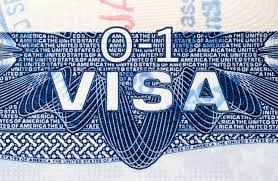O1 Visa Lawyer vs. DIY: Which Is Better for Your USCIS Approval?

Applying for an O1 visa is a significant undertaking, especially for individuals with extraordinary abilities in fields like science, arts, business, athletics, or education. Whether you’re an acclaimed filmmaker, a world-class athlete, or a breakthrough tech innovator, the O1 visa can be your gateway to working in the United States. However, the path to approval by U.S. Citizenship and Immigration Services (USCIS) can be daunting.
One of the key decisions every applicant faces is whether to hire an experienced O1 Visa Lawyer or attempt the application process on their own. This article explores the pros and cons of each approach and helps you decide which route is better suited for your success.
Understanding the O1 Visa
Before diving into the comparison, it’s important to understand the O1 visa itself. The O1 visa is designated for individuals who possess “extraordinary ability” in their field and who have been recognized nationally or internationally for those achievements. Unlike other work visas, the O1 visa does not rely on a lottery system or specific country quotas. Instead, approval is based solely on merit and documentation.
Because of its high standards, USCIS applies rigorous scrutiny to O1 petitions. Every claim must be backed with compelling evidence, from press articles and awards to contracts, expert letters, and documented accomplishments.
The DIY (Do-It-Yourself) Approach
With abundant resources available online, some applicants consider handling the O1 visa petition process themselves. Websites, forums, and government portals offer information about forms, requirements, and instructions. In theory, this option allows for full control over the application and can help applicants save on legal fees.
Benefits of a DIY O1 Visa Petition
Cost Savings
Legal fees for an O1 visa lawyer can range from several thousand to over ten thousand dollars depending on the complexity of the case. Handling the application yourself can significantly reduce these costs, making it an appealing option for applicants with tight budgets.
Firsthand Knowledge
By managing your own petition, you become intimately familiar with USCIS requirements and your own qualifications. This can be empowering and informative, especially if you plan to pursue multiple immigration filings in the future.
Control and Timing
With no intermediaries, you have full control over the timeline and process. You’re not waiting for a lawyer to review or respond, which can be beneficial if you’re on a strict deadline and willing to commit the necessary time.
Drawbacks of a DIY O1 Visa Petition
High Risk of Mistakes
USCIS guidelines are complex. Even a small error—like filing to the wrong address, missing a signature, or submitting vague evidence—can result in a Request for Evidence (RFE) or outright denial. Unlike more straightforward visa categories, the O1 visa demands sophisticated argumentation and evidence presentation.
Time-Consuming and Stressful
Preparing an O1 petition requires dozens of hours for research, writing, gathering documentation, and organizing materials. It also demands a clear understanding of how to structure the petition in a format USCIS expects.
No Legal Argument
USCIS officers look for a well-crafted legal brief that clearly ties an applicant’s achievements to the O1 eligibility criteria. Without legal training, many DIY applicants struggle to make a persuasive argument aligned with immigration standards.
Difficulty Interpreting RFEs or Denials
If USCIS issues an RFE or denies your petition, understanding the reasoning behind it and formulating a strong response can be extremely challenging without professional help.
The O1 Visa Lawyer Advantage
An experienced O1 visa attorney offers a different level of support. These professionals specialize in building compelling cases that align with legal requirements and anticipate USCIS scrutiny.
Benefits of Hiring an O1 Visa Lawyer
Expert Knowledge of Immigration Law
A good O1 visa lawyer knows the USCIS playbook. They understand the legal definitions, adjudication standards, and documentation strategies that make a successful petition. They can identify gaps in your evidence and help strengthen your case where necessary.
Customized Legal Brief and Evidence Strategy
Every O1 petition must include a legal argument justifying the applicant’s extraordinary ability. Lawyers excel at framing your accomplishments in a way that aligns with regulatory language. They ensure every piece of evidence ties back to one of the recognized criteria.
Fewer Delays and RFEs
Most RFEs occur because of missing or unclear evidence. Lawyers know how to avoid these pitfalls and present a clean, well-organized petition that reduces the likelihood of back-and-forth communication with USCIS.
Peace of Mind
Navigating the immigration system can be incredibly stressful. A lawyer takes that burden off your shoulders, allowing you to focus on your career or upcoming projects while they handle the legal aspects.
Stronger Peer Letters and Recommendations
One of the key components of an O1 petition is recommendation letters from industry experts. Lawyers often help draft or edit these letters to make them more impactful and compliant with USCIS standards, which is hard to do independently.
Help with Premium Processing and Timing
If your timeline is tight, lawyers can help you file for premium processing correctly, ensuring USCIS responds within 15 calendar days. They also track your case status and communicate with USCIS when needed.
Drawbacks of Hiring a Lawyer
Cost
The most obvious disadvantage is cost. Experienced O1 visa lawyers charge thousands of dollars for their services, which may be a barrier for freelancers, new entrepreneurs, or self-funded applicants.
Choosing the Right Lawyer
Not all immigration lawyers are created equal. Some may not have experience with O1 cases, or may not understand the nuances of your industry. Vetting your legal representation carefully is crucial to avoid wasted time and money.
Comparing DIY and Legal Help: Which Is Better?
The right choice depends on your individual situation, experience, and risk tolerance. Here are a few factors to help you decide:
Nature of Your Field
If you work in a field with well-documented recognition—like film, science, or major sports—you may be able to present evidence more clearly. Fields with subjective or emerging standards (such as digital content creation or niche entrepreneurship) often require a legal professional to translate your impact into the language USCIS understands.
Strength of Your Evidence
If you already have extensive press coverage, prestigious awards, a high salary, and strong peer endorsements, a DIY petition may be feasible. But if you’re struggling to meet the criteria or unsure how to document your achievements, a lawyer is often necessary.
Time Constraints
Preparing a DIY petition requires a substantial time commitment. If you’re working on multiple projects, facing deadlines, or juggling other responsibilities, outsourcing the process to a lawyer can ensure the application moves forward without sacrificing quality.
Risk Tolerance
A single mistake can result in costly delays or denials. If your career, income, or personal life depends on timely approval, a lawyer reduces your risk and gives you a better chance at first-time success.
Real-World Examples
Consider two applicants: one is a celebrated classical musician with Grammy nominations, and the other is an innovative app developer who has built a niche brand but lacks mainstream recognition.
The musician may be able to draft a strong DIY petition using readily available media, awards, and contracts. The app developer, however, would benefit greatly from an attorney who can craft a legal narrative demonstrating how the work qualifies as “extraordinary” despite being unconventional.
How to Find the Right O1 Visa Lawyer
If you choose to work with a lawyer, make sure you hire someone with a proven track record in O1 visas. Look for:
- Case studies or client testimonials
- Industry-specific experience
- Clear communication and transparent pricing
- Responsiveness and support during the full process
Consultations are often available to evaluate your case before you commit. Take advantage of these to gauge how well the lawyer understands your goals and how confident they are in your eligibility.
Final Thoughts
The decision between hiring an O1 visa lawyer and applying on your own is not one-size-fits-all. Each approach has its advantages and challenges.
If you’re highly organized, confident in your documentation, and willing to invest the time, a DIY O1 visa petition might work for you. But if you want to avoid USCIS delays, improve your odds of success, and reduce stress, hiring an experienced O1 visa lawyer is the smarter long-term investment.
Ultimately, your visa is more than just paperwork—it’s the key to your career in the U.S. Make your decision with care, and if needed, invest in the expertise that can help you achieve your goals without unnecessary setbacks.




